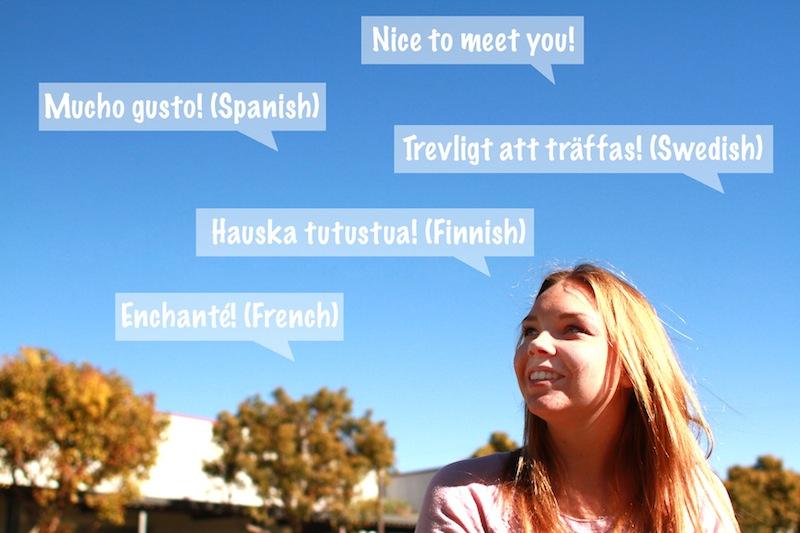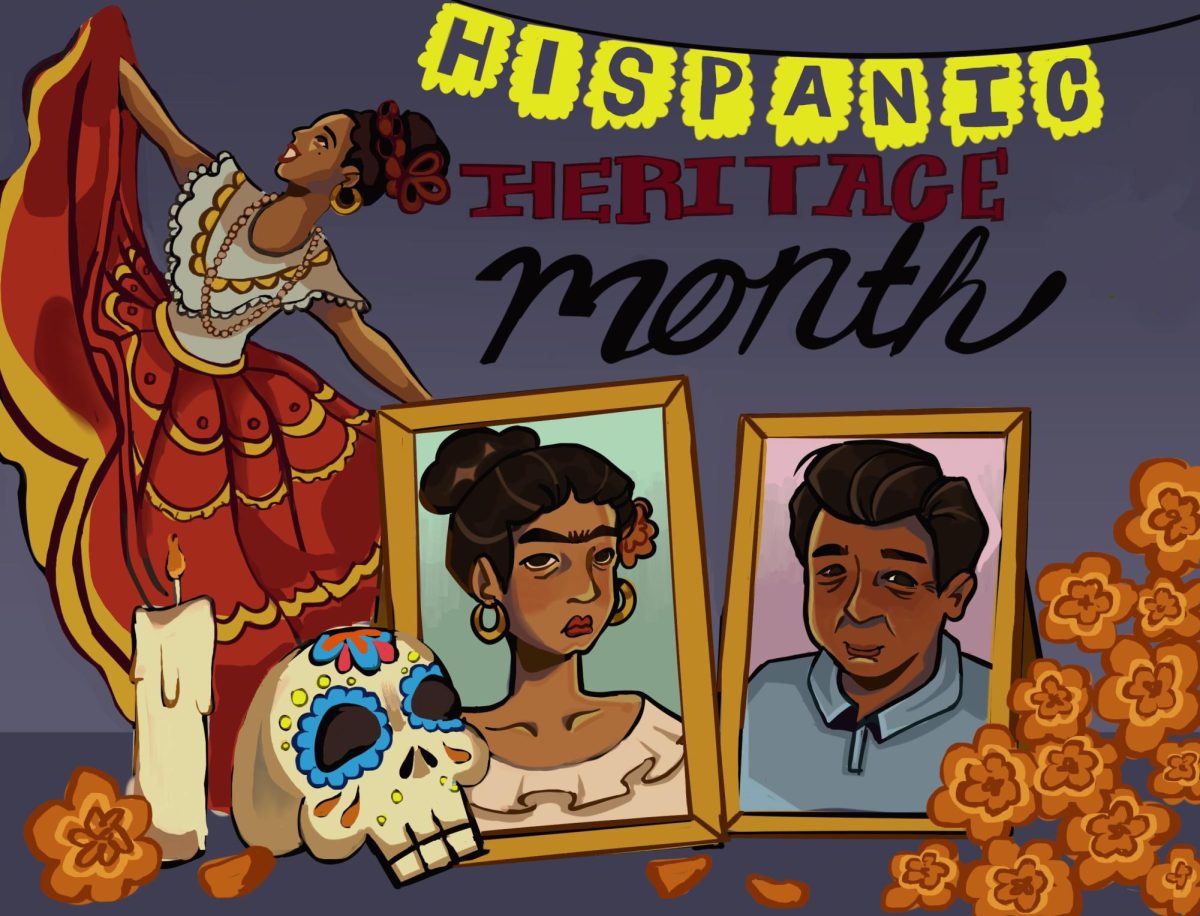
Speaking two languages doesn’t just provide the opportunity for broader skills and communication; bilingualism has also been proven to have positive effects on the brain in its adaptability and aging.
Recent studies have shown that the brains of bilingual people tend to be better than the monolingual at focusing and task-switching because of their ability to navigate between multiple languages.
Bilingual children are also better at adapting to new environments, but people who learn another language at any point in their life still experience the other positive effects, including the delaying Alzheimer’s and other forms of dementia.
Spanish 1 teacher Kathy Leaf hopes that the discovery of these benefits will encourage more schools in the United States to start teaching foreign languages at a younger age.
“The United States is behind in that aspect compared to other countries. And granted, the other countries are learning English, which is considered sort of a universal language,” she said. “But if we look at the studies and what bilingualism does, then it makes sense that it doesn’t matter what the universal language is or what two languages you’re learning. If it’s going to be that much of an improvement for your mental capacity, then we should be doing it.”
Although there is a debate of whether or not it is easier to learn foreign languages at a younger age, beginning earlier does allow more time to develop and use a language. While most students in the United States only take foreign languages in high school, the majority of countries within the European Union begin teaching English in primary school, so students can then choose to study another language in secondary school and become trilingual.
[soundcloud url=”https://api.soundcloud.com/tracks/124409060″ params=”color=ff6600&auto_play=false&show_artwork=true” width=”100%” height=”166″ iframe=”true” /]
Senior Maija Saarinen, an exchange student from Finland, is already fluent in four languages and working on her fifth.
According to Saarinen, people in Finland speak three languages: Finnish and Swedish, the country’s two native languages, and English. Along with those three, Saarinen is also fluent in French and is in Senora Leaf’s Spanish 1 class this year. She was surprised by how few American high school students speak multiple languages.
“It’s really funny because you would think that here, where everything’s bigger, the education would offer more for kids to study languages,” she said.
As opposed to Finland and many other nations, only about a quarter of people in the United States know a language other than English well enough to hold a conversation. Of those who are bilingual, 55 percent are fluent in Spanish.
Senior Hanna Rivera is a part of that 55 percent, raised speaking Spanish to her Puerto Rican father and English with her mother. Although she is fluent in both, English is the language she thinks in and uses more frequently.
“I probably consider English my first language, although I learned certain words just in Spanish. I thought that ‘pasas’ were raisins until I was like ten. When I first heard it, I was like, ‘what’s a raisin?’” she said.
She believes schools should offer more foreign languages.
“I think there should be more opportunities to learn other languages in school. If we want to go study in a foreign country, our options are limited,” she said.
While most language classes are offered only at the high school level in Ventura County, more schools have been adopting immersion programs for younger grades. One of the first was the two-way immersion program that began as a kindergarten class at Montalvo Elementary School. Students in the program are taught in both English and Spanish throughout elementary school, and can continue at Anacapa Middle school and Ventura High School if they wish.
Along with benefiting the brain, bilingualism can also make it easier and faster to learn other new languages. It is especially easy when learning within a group of languages that all share certain commonalities, such as the Romance languages or the Italo-Celtic languages.
Saarinen said that her knowledge in French has helped her this year in Spanish, but the others are not similar enough to make much of a difference.
“Speaking French helps because a lot of the words are similar, so you can kind of guess and you have the masculine and feminine and those are the same in French,” she said. “It’s funny because in Finnish we don’t have he or she; we just have one word. You would think that Finnish and Swedish are the same kind of, because we speak both in Finland, but they’re not at all; it’s totally different.”
Senior Cassandra McCambridge learned Swedish before English, using the former with her mother and and the latter with her father when she little. Although the two are not in the same language group, knowing Swedish helped McCambridge when she began taking Spanish at Foothill.
“I already knew how to roll my R’s. I got the accent down pretty well. I think it just overall helped me adapt to learning a completely new language because as a freshman, I only knew hello or goodbye or whatever,” she said. “Knowing Swedish, which is a completely random language, I guess, definitely helped to learn a new language. The sounds, with certain words, are similar to Spanish.”
However, McCambridge wasn’t as sure about the potential benefits in regards to math and problem-solving.
“I love math. It’s my favorite subject, actually. But to be honest, I think that’s because I get that from my dad because he’s a mechanical engineer, so I don’t know if knowing Swedish helped me with that,” she said.
“I could totally see how that could relate though because when I’m conversing with a family member and they say a word that I don’t really know, based on everything else they said, I can try and figure out what the word means.”
Rivera thinks that her bilingualism will be most beneficial later on in her career.
“[Knowing another language] is a great resource to have. I want to work in social sciences or humanities and I think that being bilingual would be helpful,” she said.
Freshman Ellena Thomas, who is fluent in Japanese, also believes her knowledge of two languages will be beneficial to her after high school.
“I think it really helps in the future. Nowadays businesses are looking for bilingual people, and so are colleges and universities,” she said.
With the world becoming more globalized and connected, knowing multiple languages is becoming increasingly important and beneficial. There are more bilingual people in the world than monolingual.
“I think once you’ve learned, keep going and learn as many as you can. These is the era of polyglots. It’s a big thing to speak multiple languages,” Leaf said.







